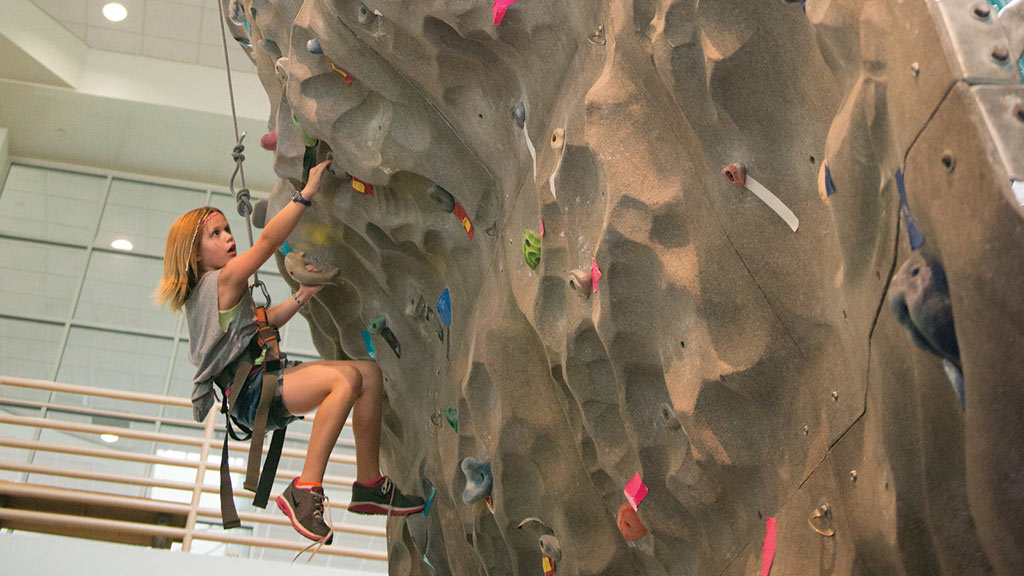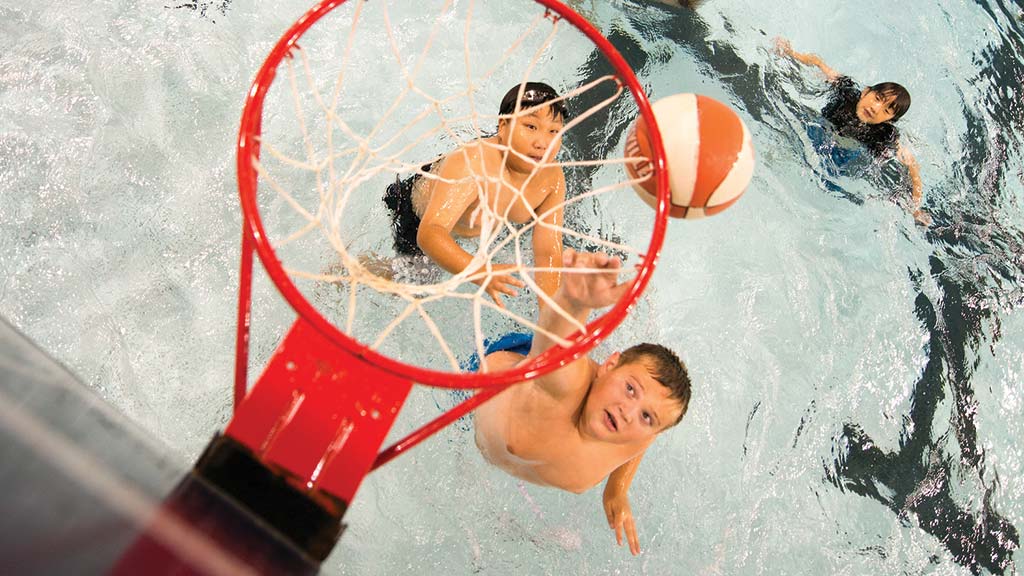Financial impacts of the COVID-19 pandemic are no stranger to the campus recreation industry. Many departments are facing a multitude of challenges including budget cuts and staffing shortages. These leave little room for leadership to introduce elaborate new programs to engage students.
Whether your school is one of these still struggling, or finally seeing a light at the end of the tunnel, anyone can begin incorporating at least one of these profitable programming ideas. Create a win-win scenario for your department with increased cash flow and engagement.
Profitable Programming: Fit-For-Hire
The University of Massachusetts Amherst (UMass) started the Fit-For-Hire program in 2018 simply by adding the following information to the website:
“Campus Recreation is pleased to offer Fit-For-Hire services to the campus community. We know how busy life at UMass can be, so let us bring private fitness instruction to your event, your residential area or department. Our instructors will come to your on-campus location and provide your group/team with a customized class of your choice. Please fill out the form below. You must complete the form at least one month before the date of your session.”
Requests for the program are made via a Google form that is emailed directly to Jill Isabelle, the assistant director for Group Fitness. “We invoice the department or group and process a recharge once the session is complete,” said Isabelle. “It didn’t take a lot of time or resources to get the program here up and running.”
EXTRA CREDIT: Three campus recreation departments offer up their creative revenue streams from universities across the country.
Fit-For-Hire classes start at $50 per hour/per instructor for up to 50 participants. An additional instructor or advisor is required for events over 50 participants. Some of the class options include 30-minute abs, barre, boot camp, HIIT, vinyasa yoga and Zumba.
Isabelle shared she talked with peer institutions who offer similar programs to find out what worked well and what didn’t. From there, she wrote an outline for how her team envisioned the program running at UMass. “I created the Google form that we still use. After, it was just a matter of working with our web experts to get everything on our website,” she elaborated. “We didn’t do any advertising because we had been receiving requests for fitness classes from various groups on campus for years prior. So, all advertising was through word of mouth.”
Overall, Isabelle concluded the Fit-For-Hire program is of great value to the campus community. It allows departments, registered student organizations and administrators to engage in physical and mental activity with their peers and colleagues. “It facilitates team building and connection within groups and departments and fosters an atmosphere of acceptance and understanding,” she added.
Profitable Programming: Parties and Rentals
Many schools may already offer different types of party spaces and rentals for additional revenue. However, they might not be marketing these services to the fullest potential. Larrissa Becker, the director of operations and engagement for University Well-Being and Recreation at Ohio University, shared they have a great relationship with the local schools in their county.
“We utilize the local schools to distribute information on youth programs, summer camp and birthday parties,” said Becker. “We distribute flyers to the elementary schools throughout the semester that go to each child in the community. This direct marketing produces a high return to programs as well.”
For birthday parties, Ohio University offers:
- Climbing Wall Rental: This includes use of instructors and an agreed amount of time at the wall, depending on the number of people climbing.
- Ice Skating: Either private ice time or time during rec skate. Campus rec also rents out the mezzanine of the ice rink to use as a party room for visitors to have food and open gifts.
- Swim Party: This includes swim time during rec swim or renting private pool time.
One of the great benefits to the Campus Rec team is the ability to leverage their facility by being the only source for indoor swimming, ice skating and climbing in the county. “It’s a great alternative for children celebrating winter birthdays,” added Becker. “Also, most of our users choose to rent during existing recreational times because it’s more cost effective. But it’s also helpful because it’s integrated into our existing operation. So, it doesn’t require additional staffing or time from a reservation standpoint.”
Profitable Programming: Massage Therapy
Sabrina Pate, the office coordinator at Western Kentucky University (WKU) Campus Recreation and Wellness, said there are a few different ways she has seen schools set up massage therapy services, but a huge key is finding a great licensed massage therapist who understands higher education and is student-centered. “If they understand we are here to serve the students ultimately, then they are better able to serve students, faculty and staff, and the community,” she said.
To get started, Pate said schools will need a private space they can transform into a retreat. Make sure to have:
- Dim lighting
- A quality massage table
- Comfortable table linens
- Plenty of relaxing noise — WKU layers soothing music with white noise
- A solid plan for how to book and communicate the schedule to the therapist
Taking advantage of listservs to the campus community is also vital to getting the word out and capturing those at your front door, she suggested.
Pate shared the added revenue has been a program saver in the face of many years of budget cuts at WKU. “Thanks to this revenue, we have been able to offer staff and student professional development, replace worn out equipment and continue offering programs to our students that we could not afford otherwise,” she said. “The program has also given us the opportunity to make connections with faculty and staff, and allow them to see all we offer for students, which has led to them becoming some of our biggest champions for the department. They share our services in their classes and promote our students utilizing all we offer.”
EXTRA CREDIT: Are you considering offering massage services within your recreation center? Here are a few of the pros and cons to consider.
Most importantly, Pate added the reward of being able to see a real impact in their clients’ overall well-being is worth it and contributes to the retention and persistence of students.
If you are considering adding massage therapy to your rec center’s profitable programming offerings, Pate suggested to not underestimate the power of repeat clients and individualized care. “When we get to know our clients, they want to return,” she said. “We are a safe space that helps them add in much needed self-care. When they win, we win. We have a heavy partnership between our massage therapists and myself as the office coordinator which has led to a very successful program.”














